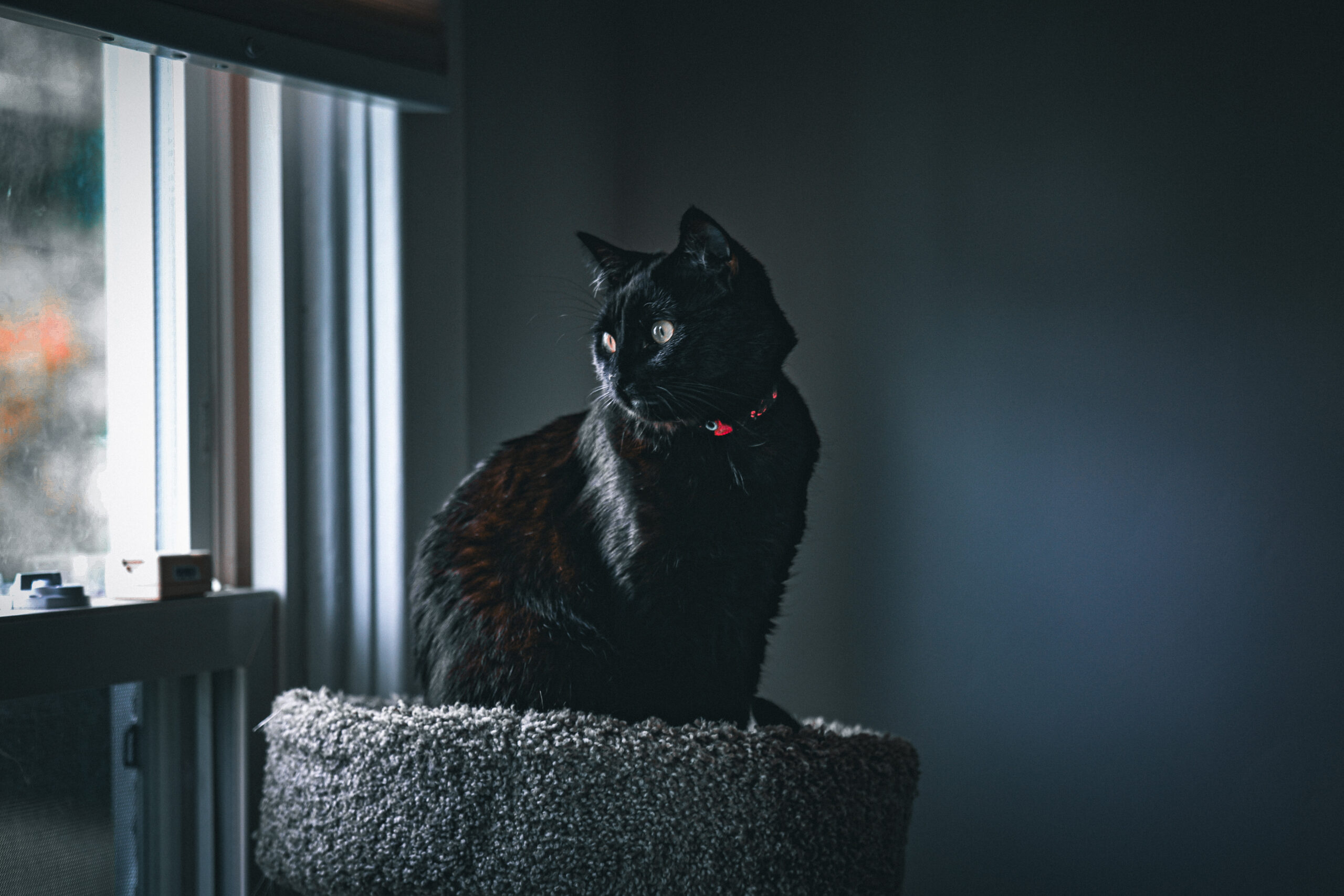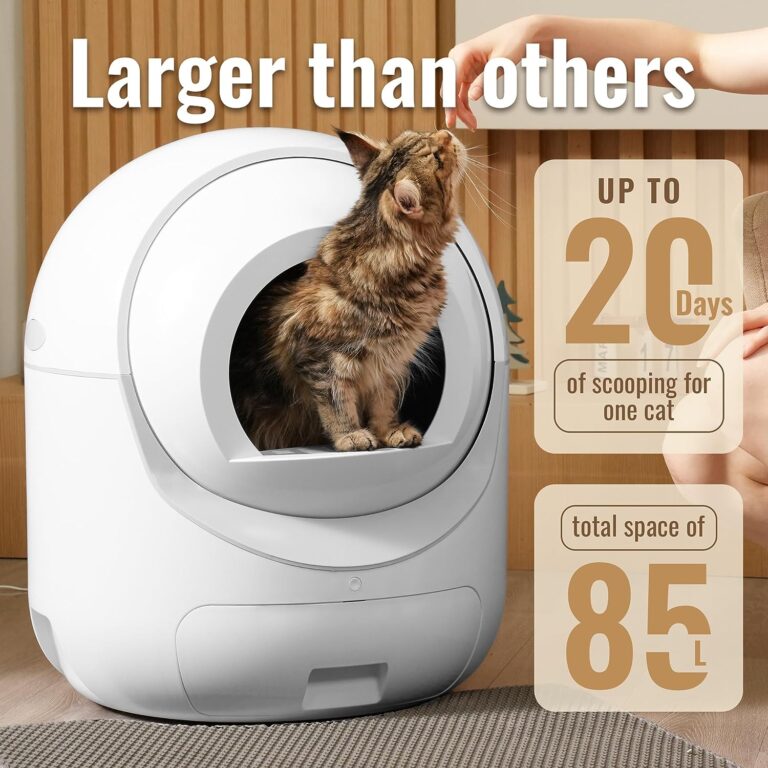How To Stop A Cat From Spraying Indoors Home Remedies
Is your home starting to smell like a litter box due to your cat’s indoor spraying habits? Not only can this be offensive to the senses, but it can also be a source of stress and financial strain as you constantly clean or replace affected items. However, fear not! There are effective home remedies that can help you put a stop to your cat’s unwanted spraying behavior. In this article, we will explore some practical solutions that can transform your home into a pleasant, odor-free environment for both you and your feline friend.
Understanding Cat Spraying
What is Cat Spraying?
Cat spraying is a behavior where cats release urine in small amounts onto vertical surfaces, such as walls or furniture. Unlike regular urination in a litter box, spraying is not a normal way for cats to eliminate waste. It is important to understand that cat spraying is different from urinating outside the litter box, as it is a form of communication and marking territory.
Why Do Cats Spray Indoors?
There can be various reasons why cats spray indoors. It is essential to identify the cause to properly address the issue. Cats may spray due to medical reasons such as urinary tract infections, feline lower urinary tract disease (FLUTD), diabetes, or hyperthyroidism. Behavioral causes can also contribute to spraying, including stress, anxiety, territory marking, or even a change in the household. Understanding the underlying cause is crucial in finding effective solutions.
Identifying the Cause
Medical Causes
Medical conditions can contribute to cat spraying. Urinary tract infections, FLUTD, diabetes, and hyperthyroidism can all lead to inappropriate urination behaviors in cats. If your cat starts spraying suddenly, it is important to rule out any underlying medical issues by consulting your veterinarian. They can provide a comprehensive examination and recommend appropriate treatments or medications if necessary.
Behavioral Causes
Behavioral causes are often associated with spraying. Cats may spray to mark territory, establish dominance, or communicate with other cats in the area. Stressful situations, such as changes in the household, new pets, or conflicts with other cats, can trigger spraying behavior. Identifying and addressing the underlying behavioral issues can help in resolving the spraying problem.

Creating a Comfortable Environment
Provide Adequate Litter Boxes
Having enough litter boxes is crucial in reducing the chances of spraying. The general rule is to provide one litter box per cat, plus an additional one. For example, if you have two cats, three litter boxes should be available. Ensuring easy access to litter boxes throughout the house will encourage appropriate elimination and reduce the urge to spray.
Choose the Right Type and Placement
Consider your cat’s preferences when selecting litter boxes. Some cats prefer covered boxes, while others prefer open ones. Experiment with different types to find the one your cat feels most comfortable using. Additionally, proper placement is important. Place litter boxes in quiet and easily accessible areas, away from loud noises or high-traffic areas.
Keep the Litter Boxes Clean
Maintaining cleanliness is crucial in encouraging cats to use litter boxes. Scoop the litter boxes at least once a day and completely change the litter every 2-3 weeks. Cats are clean creatures and prefer clean litter boxes. By keeping the litter boxes clean, you minimize the chances of your cat seeking alternative places to eliminate, such as spraying.
Create a Safe Space for Your Cat
Providing a safe and stress-free space for your cat can help reduce spraying behavior. Ensure your cat has access to hiding spots, cozy beds, and vertical spaces like cat trees or shelves. Additionally, establishing a routine and maintaining a calm environment can also aid in reducing stress and anxiety levels for your cat, minimizing the need to mark territory through spraying.
Using Home Remedies
Vinegar and Water Solution
A commonly used home remedy to discourage spraying is a vinegar and water solution. Mix equal parts white vinegar and water in a spray bottle and spritz it on the areas where your cat tends to spray. Cats generally dislike the smell of vinegar, which can deter them from spraying. However, always test the solution on a small and inconspicuous area before applying to larger surfaces to ensure it does not damage any materials.
Lemon Juice Spray
Similar to vinegar, lemon juice has a strong scent that cats dislike. Create a lemon juice spray by diluting lemon juice with water and spritz it on areas prone to spraying. Again, it is important to test the solution on a small area first to avoid any damage. Remember to reapply these sprays regularly, as their effectiveness may diminish over time.
Baking Soda and Water Paste
Baking soda is known for its odor-neutralizing properties. Create a paste by mixing baking soda with water and apply it to areas where your cat has sprayed. Leave the paste on for a few hours before wiping it off. This can help eliminate any lingering smells and discourage your cat from spraying in the same spot again.
Essential Oils
Certain essential oils, such as lavender or citrus, may act as natural deterrents for cats. Dilute a few drops of the essential oil with water and spray it in areas where your cat tends to spray. However, be cautious when using essential oils around cats, as some oils can be toxic to them. Always research and use pet-safe oils in appropriate dilutions.

Behavior Modification Techniques
Positive Reinforcement
Positive reinforcement can be an effective technique to discourage spraying. Whenever your cat uses the litter box correctly, praise and reward them with treats or affection. This positive association helps reinforce the desired behavior. Conversely, avoid punishment or yelling when your cat sprays, as it can increase anxiety and worsen the spraying behavior.
Training with Rewards
In addition to positive reinforcement, training your cat to associate specific behaviors with rewards can help modify spraying behavior. For example, train your cat to come to you when called or to use a scratching post instead of furniture. Consistently rewarding desired behaviors helps redirect your cat’s focus and prevents them from resorting to spraying.
Redirecting Aggression
Spraying can be associated with aggression in certain cases. If your cat sprays during confrontations with other cats or pets, focus on redirecting their aggression towards appropriate outlets. Provide interactive toys, encourage playtime, and maintain separate spaces for each pet to reduce territorial conflicts and the need for spraying.
Discouraging Marking Behavior
To discourage marking behavior, it is important to clean up any sprayed areas thoroughly. Use an enzymatic cleaner specifically designed for eliminating pet odors. This helps remove the scent markers left by your cat and reduces the likelihood of repeated spraying in the same spots. Additionally, consider using barriers such as double-sided tape or aluminum foil to deter your cat from accessing previously marked areas.
Environmental Modifications
Using Cat Repellents
Cat repellents can be useful in preventing spraying in certain areas. There are various commercially available sprays or deterrent devices that emit a scent cats dislike. Apply the repellent to the surfaces where your cat tends to spray to discourage the behavior. It is important to follow the instructions on the product and ensure it is safe for use around pets.
Blocking Access to Problem Areas
If there are specific areas in your home that your cat frequently targets for spraying, consider blocking access to these spaces. Use baby gates, closed doors, or temporary barriers to prevent your cat from reaching those areas. This helps break the habit of spraying in undesired locations and encourages them to use appropriate elimination areas.
Providing Vertical Spaces
Cats have a natural inclination to climb and perch in high places. By providing vertical spaces such as cat trees, shelves, or window perches, you offer your cat alternative options for marking territory. These spaces also provide a sense of security and ownership, reducing stress and the need for spraying.
Using Feliway or Other Pheromone Sprays
Feliway is a commercially available synthetic pheromone spray that mimics the feline facial pheromone. It helps create a calming environment and can be beneficial in reducing stress-related spraying behaviors. Spray Feliway in areas where your cat sprays or throughout the home to promote a sense of security and discourage territorial marking. Other pheromone sprays might also be effective, so consult with your veterinarian for suitable options.

Consulting with a Veterinarian
Considering Medical Causes
If you have tried various strategies and your cat continues to spray, it is crucial to consult with your veterinarian to rule out any underlying medical causes. Medical conditions such as urinary tract infections, FLUTD, diabetes, or hyperthyroidism can contribute to spraying behavior. A thorough examination, including urine analysis and blood tests, will help diagnose and treat any potential medical issues.
Seeking Professional Advice
If you are unable to resolve the spraying issue on your own, seeking professional advice from a certified animal behaviorist can be beneficial. Behaviorists specialize in understanding feline behavior and can provide tailored guidance to address your cat’s specific spraying problem. They will assess your cat’s environment, behavior, and interactions, and develop a comprehensive behavior modification plan.
Exploring Medication Options
In some cases, medication may be necessary to manage spraying behavior. Your veterinarian can discuss various medication options that can help reduce anxiety, stress, or any underlying medical conditions contributing to spraying. Medication should only be used under the guidance of a veterinarian, as dosing and monitoring are essential for your cat’s safety and well-being.
Potential Health Issues
Urinary Tract Infections
Urinary tract infections (UTIs) can cause discomfort and increase the likelihood of inappropriate urination behaviors, including spraying. If your cat exhibits signs of frequent urination, straining to urinate, or blood in the urine, it is crucial to consult with your veterinarian for diagnosis and treatment.
Feline Lower Urinary Tract Disease (FLUTD)
FLUTD is a common condition in cats that can lead to urinary issues, including spraying. Cats with FLUTD may experience pain, frequent urination, or difficulty urinating. Prompt veterinary attention is necessary to provide appropriate treatment and prevent the progression of the disease.
Diabetes
Diabetes can lead to increased thirst and urination in cats, which can contribute to spraying behavior. If you notice your cat drinking excessive amounts of water, weight loss, or changes in appetite, consult with your veterinarian for proper diagnosis and management of diabetes.
Hyperthyroidism
Hyperthyroidism is a hormonal disorder that can affect cats and may lead to increased urination and spraying. Cats with hyperthyroidism may exhibit weight loss, increased appetite, restlessness, or irritability. Your veterinarian can perform tests to diagnose hyperthyroidism and recommend appropriate treatment options.

Preventing Future Incidents
Spaying or Neutering Your Cat
Spaying or neutering your cat can help reduce spraying behavior, especially if it is related to territorial marking or hormonal influences. The procedure helps decrease hormonal fluctuations, making your cat less likely to spray or mark territory. It also has additional health benefits and helps control the cat population.
Regular Veterinary Check-ups
Regular veterinary check-ups are essential in maintaining your cat’s overall health and well-being. Routine examinations help identify any potential health issues or changes in behavior that may contribute to spraying. By addressing these concerns early on, you can prevent future incidents of inappropriate urination.
Maintaining a Healthy Diet
Providing your cat with a balanced and nutritious diet is crucial for their overall health and can help prevent certain medical conditions that may contribute to spraying. Consult with your veterinarian to determine the appropriate diet for your cat’s specific needs, taking into consideration their age, weight, and any existing health conditions.
Sufficient Play and Mental Stimulation
Keeping your cat mentally stimulated and providing regular playtime can help reduce stress and anxiety, which can contribute to spraying. Engage your cat in interactive play sessions and provide toys that encourage exercise and mental engagement. Additionally, consider puzzle feeders or treat-dispensing toys to provide mental stimulation and alleviate boredom.
Seeking Professional Help
When Home Remedies Fail
If home remedies and behavioral modifications do not effectively resolve the spraying issue, it may be necessary to seek professional help. A certified animal behaviorist or a veterinarian specializing in feline behavior can assist in developing a personalized and comprehensive plan to address the spraying behavior and minimize its occurrence.
Working with a Certified Animal Behaviorist
Certified animal behaviorists have extensive knowledge and experience in understanding feline behavior. They can conduct in-depth assessments of your cat’s environment, behavior, and interactions to determine the underlying causes of spraying. Working with a behaviorist can help identify effective behavior modification techniques and provide ongoing support throughout the process.
In conclusion, understanding cat spraying is crucial in addressing and resolving the issue. By identifying the cause, creating a comfortable environment, utilizing home remedies, implementing behavior modification techniques, making environmental modifications, consulting with a veterinarian, and taking preventive measures, you can effectively prevent future incidents of cat spraying and maintain a harmonious relationship with your feline companion. Remember to approach the issue with patience, consistency, and a friendly tone to ensure the well-being and happiness of both you and your cat.







